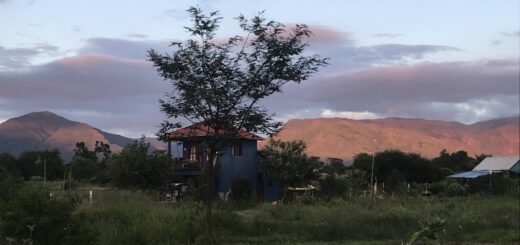Alone in Zhangjiajie with No One to Translate
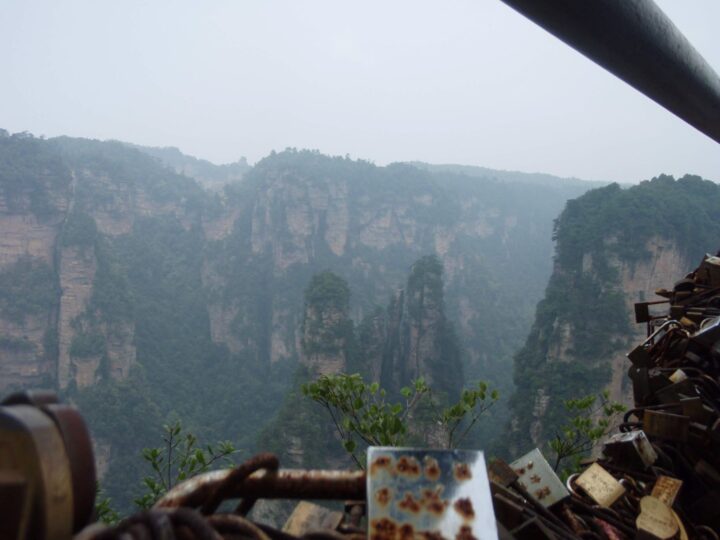
While visiting China, my wife’s relatives sent me on a bus tour of Zhangjiajie (张家界) by myself. This post recounts my experiences on a Chinese-only tour armed with beginner’s level Mandarin and a little yellow dictionary.
Booking a Mandarin-Only Bus Tour
Liuan and I were spending a month in China, basing ourselves at Liuan’s aunt Siyima‘s1 house in Changsha. Liuan was suffering from chronic pain in her ankle, which she wrote a whole book about. Her extended family tended to her and served her all the usual Chinese remedies.
I on the other hand didn’t have much to do. When I managed to escape her aunt’s gated property, I roamed the streets of Changsha. Liuan’s aunt and uncle felt I needed to get out of the house—the feeling was mutual—so they booked me a three day bus tour to Zhangjiajie through a local travel outfit.
I had never heard of Zhangjiajie. Years later, the background on my Windows login screen—you know, the exotic landscapes that make you feel really crappy about your life sitting at your desk on a Monday morning—had those familiar vertical rock formations like precariously stacked Jenga towers and winding roads lined by sheer cliffs. I felt proud of myself for having visited at least one of those bucket list landscapes.
The twist? The tour was entirely in Mandarin. There were other tour buses that catered to foreigners. But this was not one of them.
As much as I had traveled, I had never before taken a bus tour, typically preferring to forgo the fee and do things at my own pace. So I didn’t realize beforehand the extent to which being able to understand the tour guide is key to survival. Most importantly, the bus makes a lot of stops. And you need to know when and where to get back on the bus.
First Impressions
Upon getting on the bus and crawling into an open seat, Liuan’s uncle promptly undermined any chance of a good first impression by pushing the tour guide aside, standing at the front of the bus and sternly lecturing everyone about… I don’t know, I couldn’t understand it.
But I did understand. The scene brought to mind a helicopter mom getting on the bus on the first day of school and lecturing the other kids (and the bus driver) to coerce the little brats into playing nice with little Johnny. Like that ever worked. I imagined myself the rest of the trip as little Forest Gump trying to find an open seat while the other tourists responded with the Mandarin equivalent of “taken”.
Fortunately, only half of the tourists were on the bus at that point. The next person to trundle onto the bus was a twenty-something guy who chose the open seat next to mine. Maybe this wasn’t going to be so bad afterall.
On the long drive to our destination the tour guide monologued on a PA system dialed up past the point of distortion. It was loud enough to induce headaches and nausea. In the short pauses between sound torture sessions, I made small talk with my seatmate using my very limited Mandarin and a little yellow pocket dictionary2.
From what I could gather, he was from Wuhan, married, and had a job selling boxes to other companies.
Survival Strategy
Eventually we got to our first destination, a cave3. It was there that I learned my true mission on this trip was not learning about Zhangjiajie, but making it back home on the bus. At each stop the tour guide gave us instructions on where to go, what to do, when to be back, and where the bus was going to be parked. But you guessed it, I understood none of that.
I quickly adopted the survival strategy that I would execute to varying degrees of success for the rest of the three days. I latched on to a cluster of people from our group, and never let them out of my sight. In the cave lit with every color of the rainbow, I tagged along with a young family of three.
The little boy was about four years old and shyly said “hello” to me. The family graciously asked me simple questions that I could answer. Where are you from? Did you eat enough? It helped me not feel like a creep tagging along.


Friends
Over the course of the tour I latched on to various splinters of our cohort. Once, I tagged along with a group of older gentlemen. I regretted this choice when I found myself obligated to do my social duty and drink Baijiu. I merely got my lips wet with the stuff and nearly choked out a ball of fire.
Early on the second day, I was welcomed into a circle of of twenty-somethings, who would become my default group for the rest of the trip.
Everyone I interacted with was warm and friendly, except for one. Early on, I could sense that the tour guide regarded me as a liability and wanted nothing to do with me. I don’t blame him, especially after the initial interaction with Liuan’s uncle. I decided it was in my best interest for him to like me. Therefore it was up to me to break the ice.
We were stopped at a place with a river bordered by steep hills and dotted with traditional style buildings, the kind that were there for no practical reason except for tourism. I decided to make my move and ask him a question or two in Mandarin.
I don’t remember what it was. It was probably something banal like “what’s that river called?” or “where’s the bathroom”. But it worked. His facial expression noticeably softened. I had established a precedent: I would be making the effort to communicate in his language and did not expect special treatment. Later, this subtle shift in rapport would come in handy.
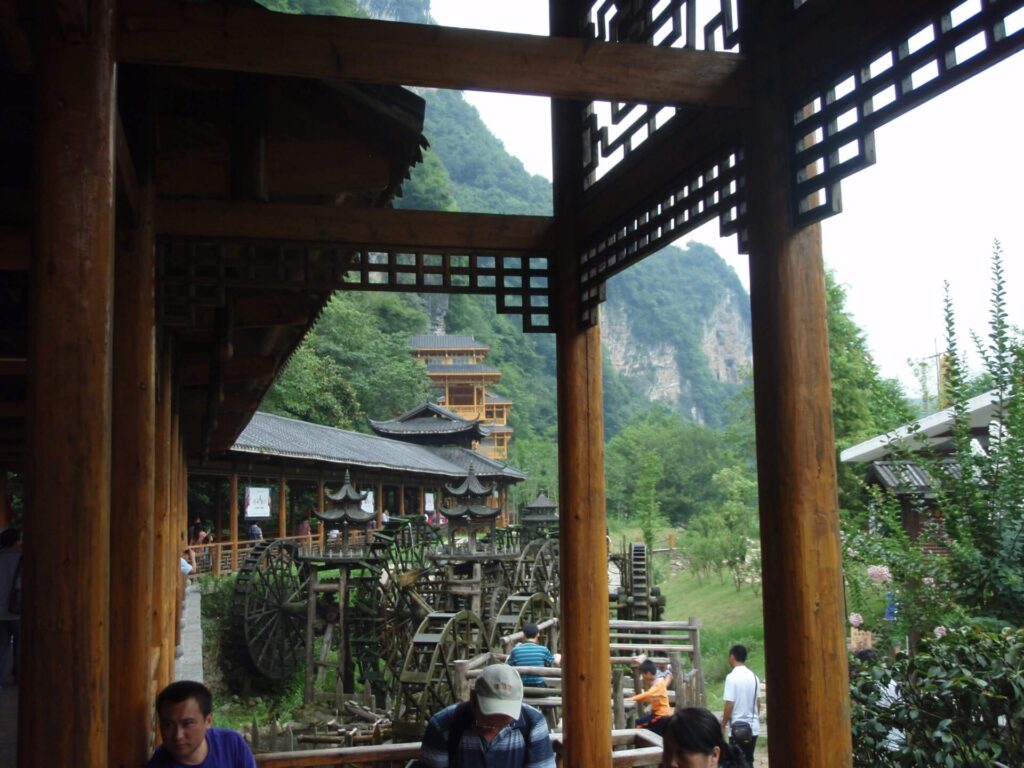
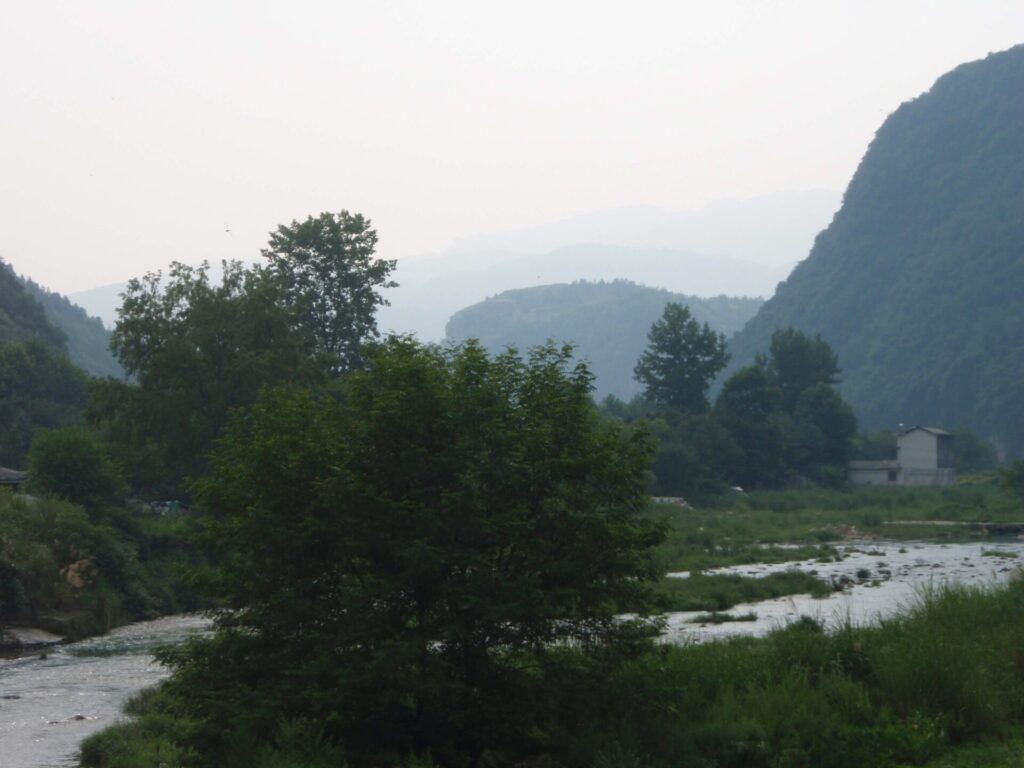
A Cultural Experience and an Illicit Marriage
The twenty-somethings became my group and helped ensure that I was in the right place at the right time, so I could finally let down my guard a bit. The pages of my little yellow dictionary were in a constant shuffle as I we swapped details of our lives, jokes, and other small acts of friendship. I would be conversational in Mandarin a matter of months if the experience had lasted that long.
On the third day we walked through a crowded maze of different “cultural experiences”. There was a show with a guy and a monkey. A classroom where we sat down and learned about something cultural. Some song and dance about Mao Zedong. I didn’t catch most of the details, but you get the picture.
In a darkened hall, one of the most crowded, there was to be a re-enactment of some kind of ceremony. My friends started getting excited. They began pointing at me, putting their arm around me, raising their hands and calling out to the presenter in jocular tone.
They succeeded in their bid. The woman with the microphone turned her attention to me, the only tall American in the room, and asked if I spoke Mandarin. Flustered, but having understood the question, I blurted out that I did, a little. Big mistake. She uttered something to the effect of “that’ll work” as I was ushered up to the stage. My face burned and perspired in the hot stuffy room as I took my position and a microphone was held to my face.
The presenter instructed me to repeat a series of statements. Marriage vows. At one point the “bride” began to cry (ceremonially) to express her sadness about leaving her family. One of my lines is to tell her not to cry. My “prize” was getting my photo snapped with the “bride”, which I could buy for an extra $10.
In the end I was glad for the chance to pay back my friends’ kindness with some laughs.
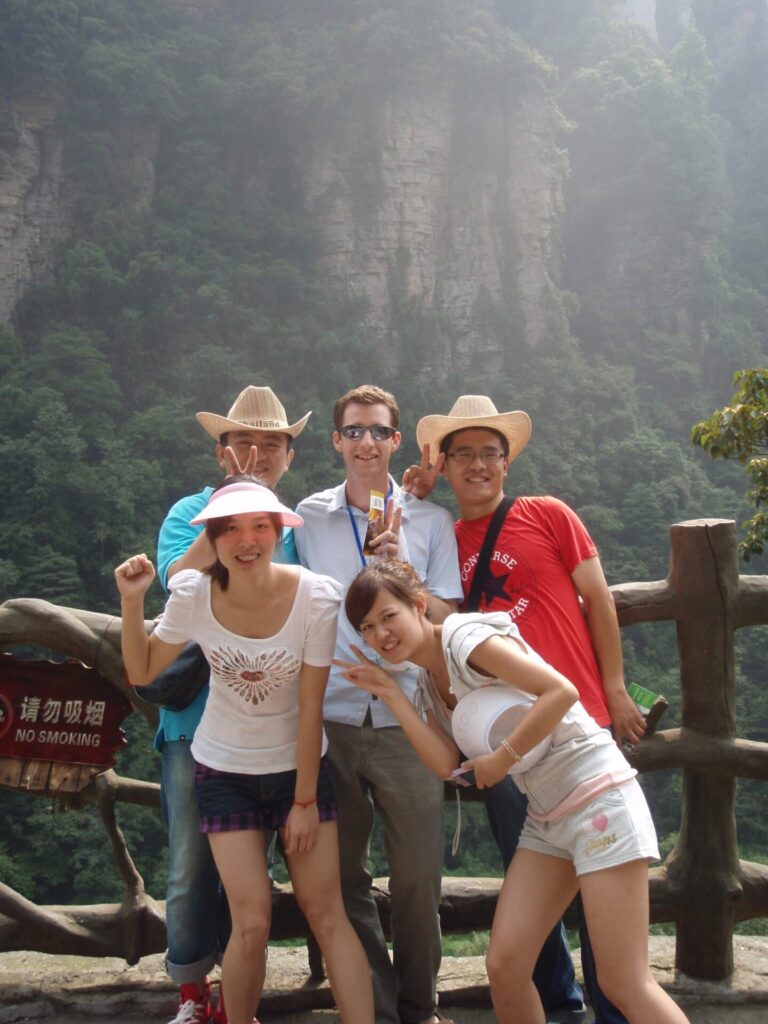
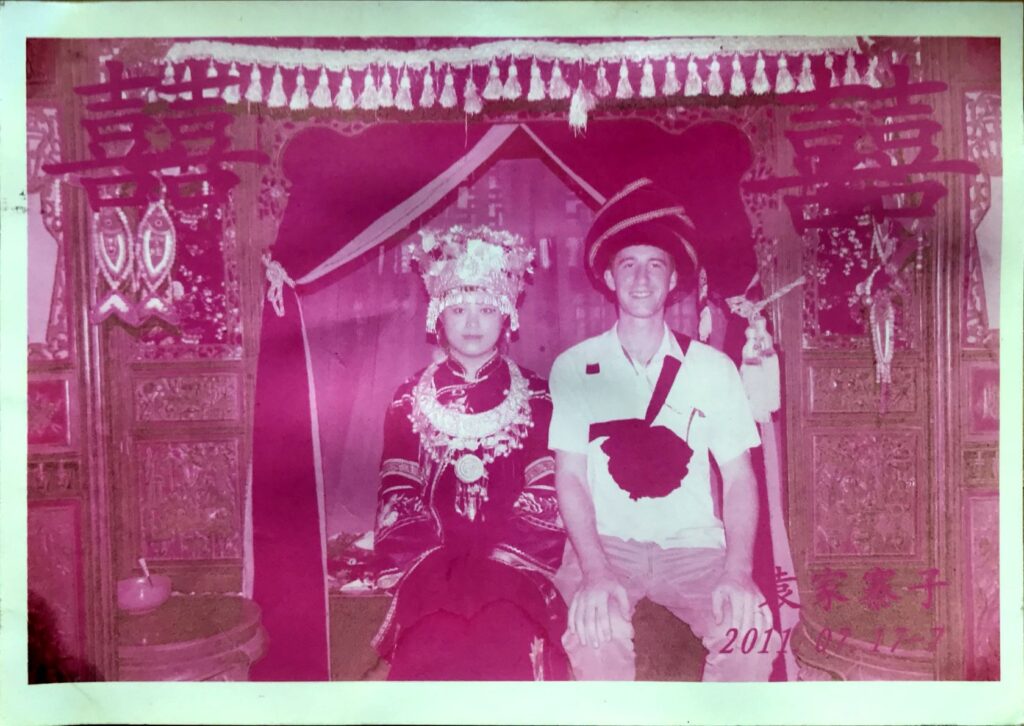
Dumb American
By the end, I was able to let down my guard and enjoy myself. I even dared to wander alone, semi-sure I had understood enough of the instructions for returning to the bus. I was beginning to feel like just another tourist in our tour group, not the dumb American whose Chinese wife’s uncle issued threats to anyone who didn’t go out of their way to protect me.
That all came crashing down on the final day when we got to the front of the line to enter the nature reserve and I didn’t have the ticket from the “cultural experience place” needed to get in. I missed that instruction.
With nothing they could do for me, my friends sullenly left me behind and entered the park. Deflated, I went to find the tour guide. I somehow explained my situation to him. Without a hint of contempt, he improvised a solution. He couldn’t leave the park himself. But rustled up some other guy (it wasn’t clear how or if they knew each other) to take me back to the hotel so I could retrieve the ticket.
My friends were surprised and happy to see me when I caught up with them in the park.

Homecoming
Though I was sad to leave my new friends, knowing I would likely never see them again, I was relieved to be returning to the safe loving care of Liuan’s family. I shared a taxi with one of the young women in our twenty-somethings group. Coincidentally, she lived a few blocks away from Liuan’s aunt and uncle.
With an air of victory I emerged from the taxi into Liuan’s embrace. I had survived the challenge. I had come home.
So what did I learn? Certainly nothing notable about Zhangjiajie. As someone with a strong self-reliant, individualist streak, the experience sharply illustrated the extent to which we rely on others for our survival. I rarely need to acknowledge this in my daily life.
It also gave me a greater appreciation for folks in my own country that must navigate their entire lives in a foreign tongue. With doctors visits, school registration, taxes, maintaining a household, and every other aspect of life the stakes are high for getting it wrong and the system isn’t always very kind. The stresses they must deal with make my three-day bus tour look pretty trivial.
Notes
1 Si Yima translates literally as “fourth maternal aunt” but we use it like a name.
2 This took place in 2011, before I had adopted the smart phone and Google Translate was still more hilarious than accurate.
3 I apologize for the lack of detail. Without a good grasp of Mandarin, nobody to explain it to me in English, and not even a smart phone I had a limited ability to know the significance of what we were looking at.








